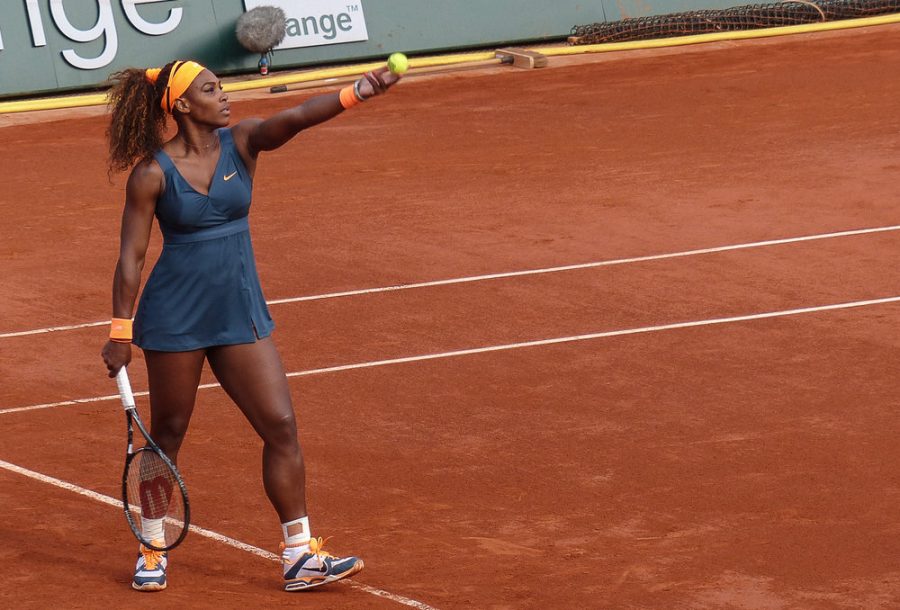Serena Williams
Famed athlete speaks out against injustices in sports and society
Serena Williams about to serve in the 2ème tour Roland Garros 2013.
February 1, 2022
Headlined and glossed across almost every sports magazine in the world, Serena Williams has laced a legacy of triumph and records for over 35 years. For many, she is considered to be the greatest female professional tennis player in history, and one of the most electrifying athletes of any age. She has spent 319 weeks as the world’s top-ranked player on the Women’s Tennis Association Ranking charts between 2002 and 2017 and won 23 Grand Slam single titles, more titles than any other person during the open era.
Melkhiah Chisem (12) implies that Williams is an admirable figure that she has looked up to at an early age, emphasizing her courage and forte.
“She’s an incredibly talented and intellectual woman. Being a Black woman in a pretty undiverse sport like that for decades takes a lot of guts and will-power. It’s self-evident that she’s one of the best in the game,” Chisem said.
William’s success was not easy; as she faced not only gender discrimination, but racial discrimination as well. For Black women, navigating the obstacles of race and gender, stereotype and burden, requires a dexterity that comprises a whole other layer of athleticism.
Tanasia Carson (12) highlights a significant event that enraged many onlookers – Serena Williams’ penalty in a match with Naomi Osaka in the 2018 United States Open.
“Serena Williams is truly a breath of fresh air, especially for Black women. She represents us so well. It is a shame that she gets negatively portrayed on media sometimes, just for being human,” Carson said.
During the US Open final, Williams received a code violation for coaching, a penalty point for breaking her racquet, and a game penalty for calling the umpire a “thief.” She was later fined $17,000. This event resembled a microcosm of what women face at work, being penalized for expressing emotion. She was up against gender and racial stereotypes.
“The fact that I have to go through this is just an example for the next person that has emotions and that want to express themselves and they want to be a strong woman,” Williams stated in an ESPN press conference following the match. “They’re gonna be allowed to do that because of today.”
As a woman, she was met with backlash because she abandoned traditionally feminine behaviors: being “modest”, “self-effacing” and “nice” said Joan C. Williams, an American feminist scholar whose work focuses on issues faced by women in the workplace.
“When men openly express anger, it elevates their status, while when women express anger, it hurts their status,” Joan Williams stated.
On top of that, as a Black woman, an added trope that often ensues women of color — loud, angry, or out of control — was applied to her.
Noah Banks (11) admires her perseverance and mental strength, implying that she has had a momentous impact on the world.
“Serena Williams is such an influential individual. She has faced so much discrimination, yet she is still one of the best major league African American women in history. She has ardently altered our community, culture, and athletics,” Banks said.




